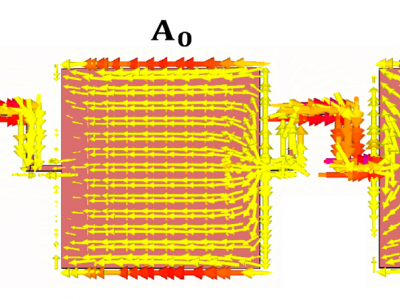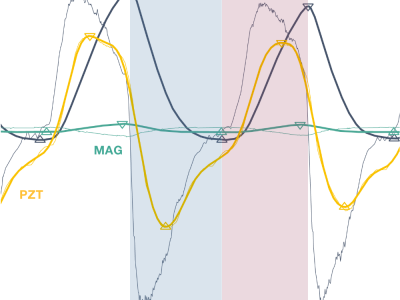Wearable Sensing
The paper proposes a systematic approach for the design of a conformal U-shaped series-feed microstrip antenna array (US-SFMA) using true time delay phase shifters. The presented study describes the design procedure of conformal SFMA without the use of additional element to tune its spectral and radiation performance.
- Categories:
 88 Views
88 ViewsHuman-robot interaction remains a significant challenge for mobile robots performing as social robots, which are expected to coexist, collaborate, and be cognitive with persons to enhance efficiency and reduce labor strength. Typically, escort robots can be widely employed for accompanying elderly and youth outdoors, guiding visitors in exhibition halls and museums, and sorting goods in warehouses.
- Categories:
 326 Views
326 ViewsThe poor posture is one of the main common health problems in the growth of adolescents, which seriously affects their physical and mental health. The posture gait recognition is a premise for preventing and correcting the poor posture. This paper proposes a gait recognition method for poor posture based on PCA-BP neural network. Using wearable intelligent insoles to measure plantar pressure, a gait recognition model based on PCA-BP neural network model is constructed.
- Categories:
 522 Views
522 Views
Raw data of 'Tetherless Multi-targeted Bioimpedance Device for Monitoring Peripheral Artery Disease Progression'
The dataset includes results from measurements of pulse signals from three different arteries using a commercial bioimpedance device mentioned in the paper, both using the conventional method and the proposed approach.
Moreover, the dataset encompasses simulated outcomes derived from HFSS (High-Frequency Structure Simulator), specifically investigating the impact of different plaque sizes on current induction at various frequencies.
- Categories:
 152 Views
152 Views
Wearable and low power devices are vulnerable to side-channel attacks, which can retrieve private data (like sensitive data or the private key of a cryptographic algorithm) based on externally measured magnitudes, like power consumption. These attacks have a high dependence on the data being encrypted -- the more variable it is, the more information an attacker will have for performing it. This database contains ECG data measured with a wearable sensorized garment during different levels of activity.
- Categories:
 373 Views
373 ViewsDataset for validation of a new magnetic field-based wearable breathing sensor (MAG), which uses the movement of the chest wall as a surrogate measure of respiratory activity. Based on the principle of variation in magnetic field strength with the distance from the source, this system explores Hall effect sensing, paired with a permanent magnet, embedded in a chest strap.
- Categories:
 529 Views
529 ViewsDataset for validation of a new magnetic field-based wearable breathing sensor (MAG), which uses the movement of the chest wall as a surrogate measure of respiratory activity. Based on the principle of variation in magnetic field strength with the distance from the source, this system explores Hall effect sensing, paired with a permanent magnet, embedded in a chest strap.
- Categories:
 146 Views
146 ViewsThe data set contains raw channel-sounding data of 30 clinically relevant scenarios, captured in the university clinic of Dresden, Germany, and a script to analyze them. The measurement campaign was conducted in five environments:
- Infirmary (Inf)
- Emergency Room (ER)
- Intensive Care Unit (ICU)
- Hallway (Hall)
- Elevator (Elev)
The patients were performing various motion sequences:
- Categories:
 178 Views
178 ViewsThe dataset was generated through the execution of a Python script designed to collect a comprehensive set of data samples from six different sensors for each specific gesture. Upon launching the script, users are prompted to initiate gesture 0, Once ready, users can commence recording, with the program automatically capturing 1000 samples for that particular gesture. Subsequently, the program prompts users to perform gesture 1, and this process repeats until data for all gestures is collected.
- Categories:
 242 Views
242 Views






